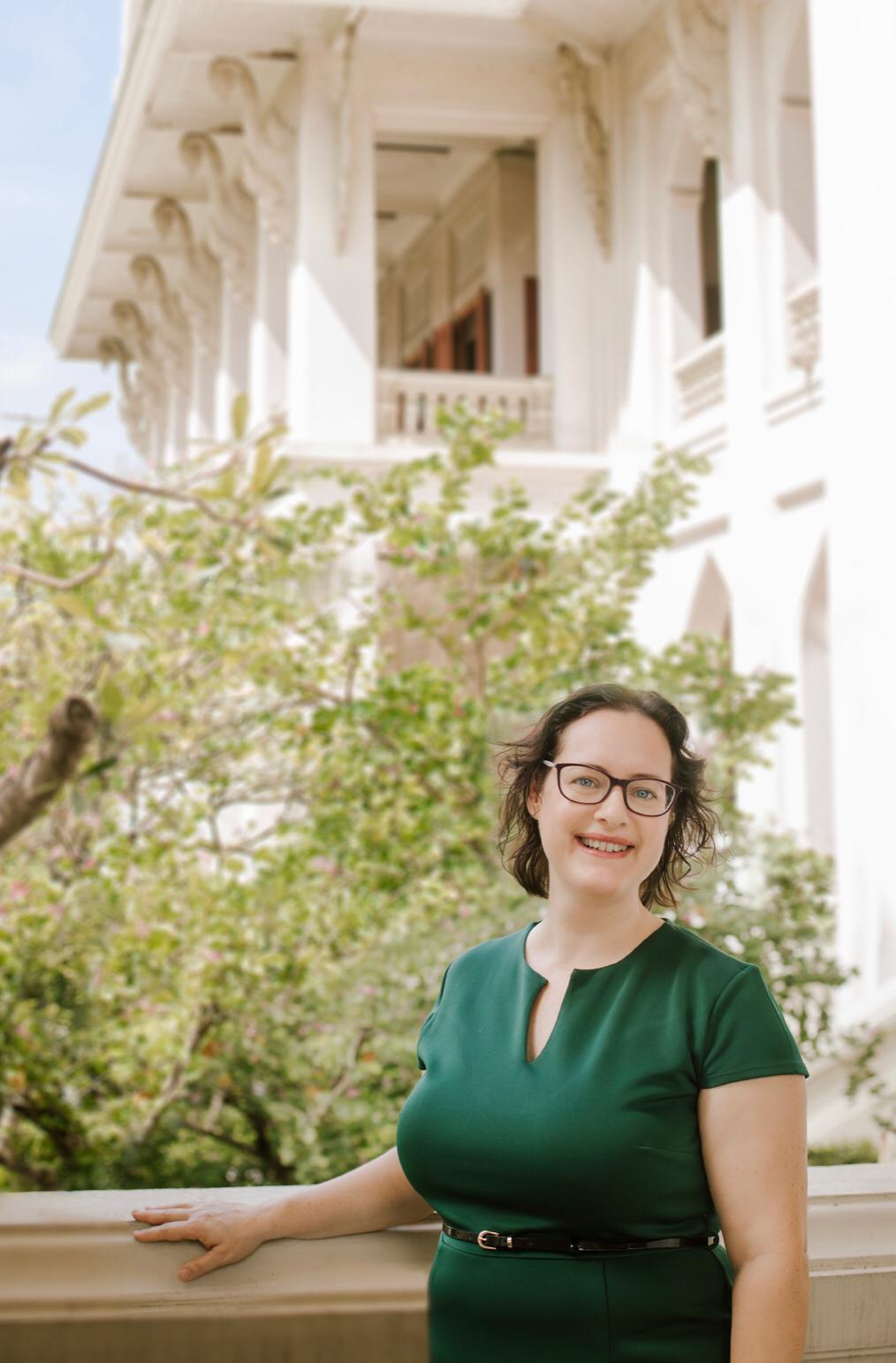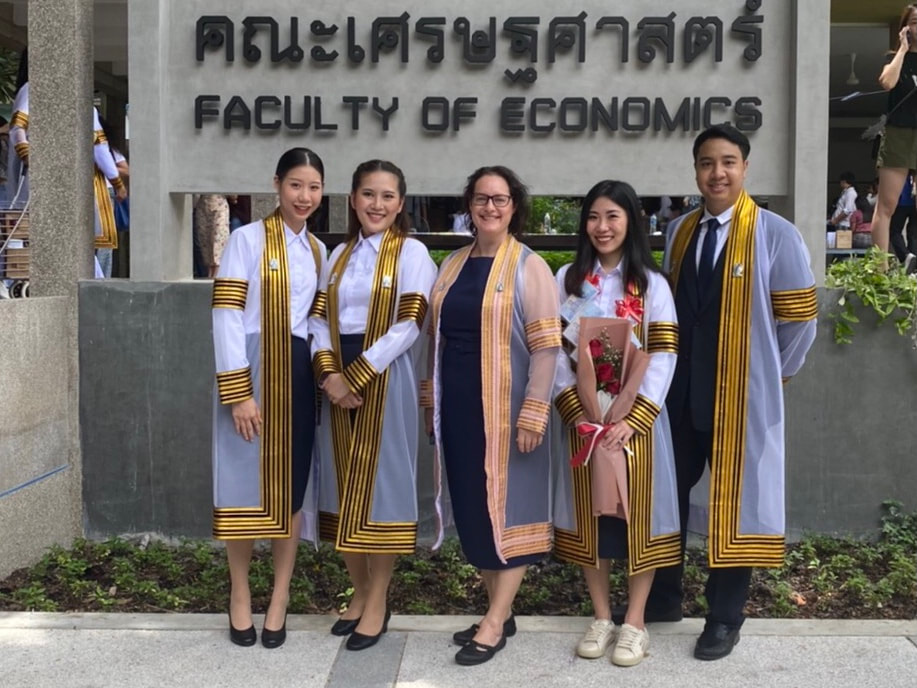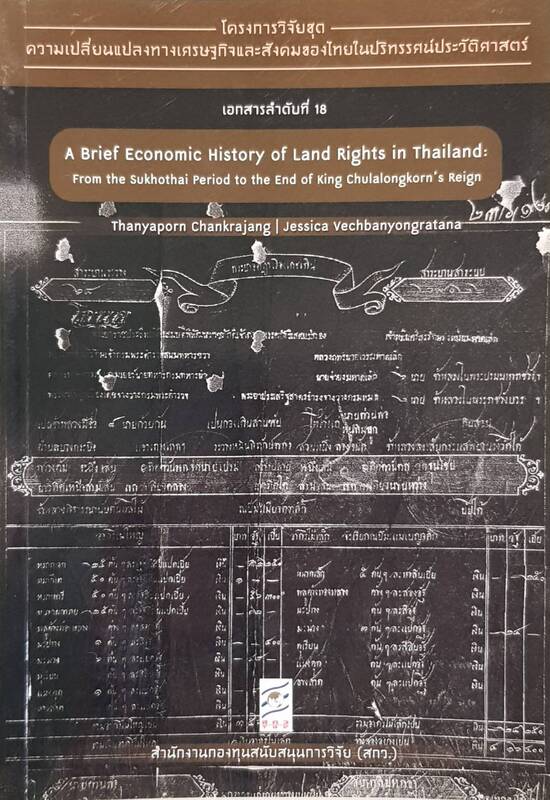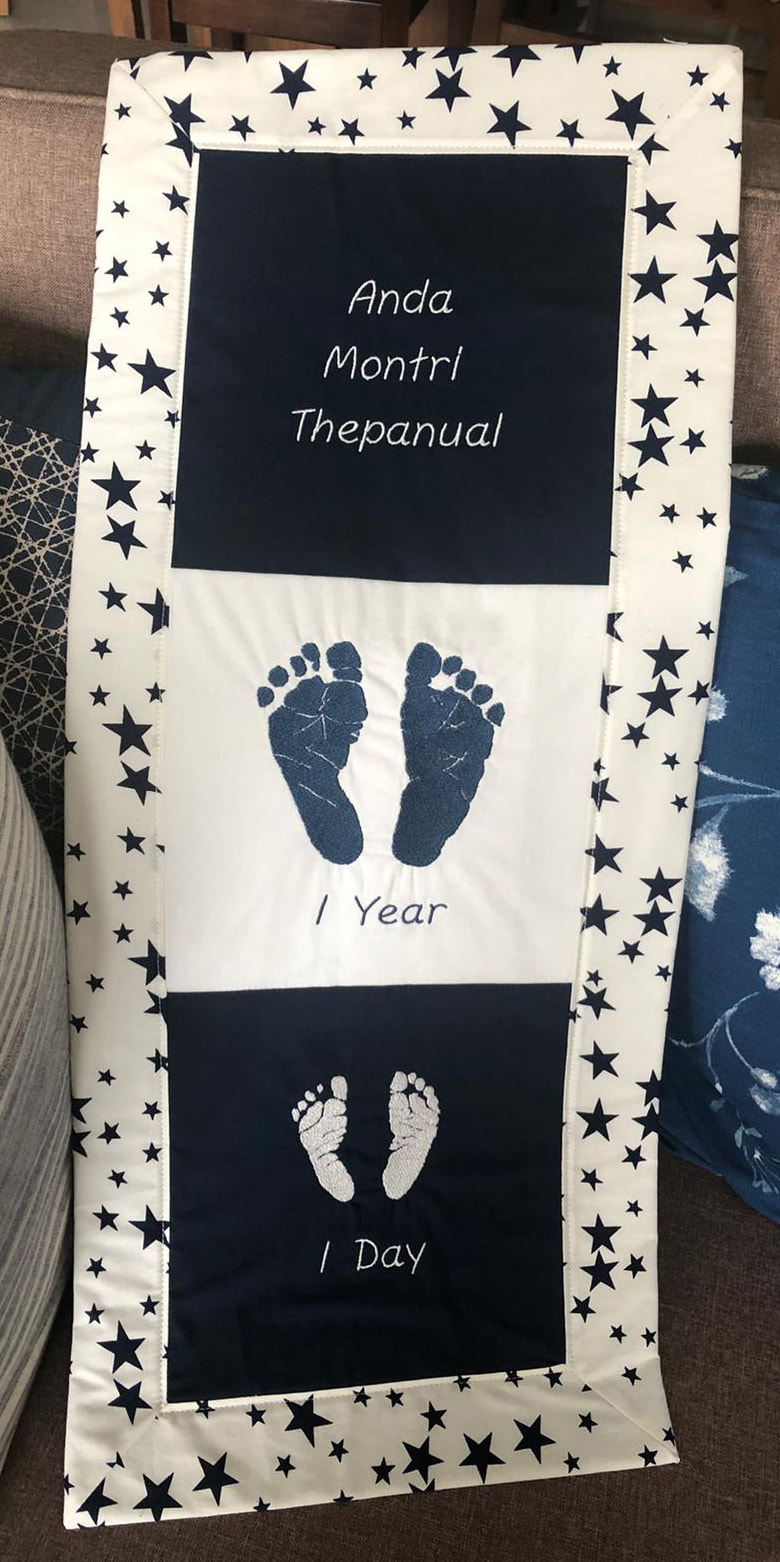Years of study produces some unexpected news about female land ownership for this dedicated professor and enterpreneurBy Ruth Gerson The local academia scene remains a vibrant sector attracting talented people from across the world to work here and enjoy Thailand’s long list of attractions. For Acharn Jessica (Vechbanyongratana), a young lady from the mountainous state of Colorado in the US who has taught at the Faculty of Economics at Chulalongkorn University in Bangkok since 2010, life in Thailand has created all kinds of new opportunities, including authorship of a book and a small business. Working as an Assistant Professor in the university’s Faculty of Economics, Jessica has been able to indulge her passion for historical research, which has produced some surprising revelations about the history of land fertility and ownership in Thailand. Jessica’s connection with Thailand actually goes back to 1995 when she arrived here as a high school exchange student. Although she originally applied to study in Japan, Jessica found herself unexpectedly diverted to Thailand under the auspices of the Rotary International exchange program due to her flexibility and open mindedness, as there seems to have been a shortage of students who signed up for SE Asia. Jessica was enrolled at a high school in the far Thai southern city of Hatyai, and housed with two families for the duration of the school year. It was certainly an effective way of learning Thai very quickly, complete with a southern vernacular, which she now chuckles about. The second time around Jessica arrived here in 2008 with her Thai husband whom she had met and married in the US. He had accepted an attractive employment in Thailand in the field of IT, while Jessica was completing her PhD degree in economics, with specialties in economic history and labor economics. |
Jessica located over 30,000 land deeds that took years of reading and studying. The documents dating back to the 1850s were written in the traditional Thai style book made of koi paper and folded accordion style. Those from the 1880s were documented on Chinese paper.Jessica feels blessed as she enjoys what she does. “I love teaching and working with students,” she says, adding that closest to her heart is the work of research which she calls “my dream job.” It opens so many interesting avenues in economics and other areas, which Jessica finds fascinating. Being fully employed by the university and raising two children, Jessica always looks around for new outlets for her curious mind and what seems limitless energy. A recent hobby, which has turned into a small business, is sewing and embroidery. Why sewing? Jessica says that she always wanted to sew and what better opportunity is than starting right away! About a year ago, she purchased a sewing machine looking for the challenge of something new and creative, and when asked where she learned to sew she answers with a devilish smile, “From YouTube!” She calls her side business ‘Baby Steps by Dr. Jess,’ which focuses on making items for babies and young children. She began with personalized Christmas stockings that became so popular that it “snowballed” into something a bit more serious. Now over a year later Jessica offers unique items such as embroidered footprints made from a baby’s first footprint taken in the hospital. Other items she calls “memories” that include wall hangings, quilts, pillowcases, tote bags and reusable snack bags. |
The lockdown period of Covid facilitated Jessica’s burgeoning business. Importantly, it gave her an outlet from the long hours of teaching with the mounting work and escalating stress that comes with virtual instructions. Jessica digitalizes her designs on the computer and turns them into items of art. For marketing she uses a Facebook page as well as by word of mouth. It is working so far, and orders keep coming in.
When asked what the highlight of her work is, Jessica says that it is research, her true passion, which has served her well. Research, according to her, is half of her university commitment, the other being teaching. Last year she published several articles on the economic history of Thailand in outlets such as the Journal of Economic History and Economic History Review, the most prestigious publications in the field, an achievement that reflects well on the university and herself.
Jessica’s first article, titled, ‘Lands, Ladies and the Law’ tells about landownership from the 1850s to the 1880s, and notes that women held more than half of the land title deeds back then. It is something of a surprise revelation as the language addressing this subject is generally male oriented.
Jessica found this astonishing information in the Department of Lands Museum. There she located over 30,000 land deeds that took years of reading and studying. In fact the project has lasted eight years and is still ongoing. The documents dating back to the 1850s were written in the traditional Thai style book made of koi paper and folded accordion style. Those from the 1880s were documented on Chinese paper.
Jessica photographed the entire museum collection of deeds and other fragile documents, resulting in approximately 50,000 images. The museum holds copies of all the images, which she hopes will be used by other researchers in the future.
Unlike in the West where economics is a male dominated area, in Thailand it has always been a subject attended to by women, particularly in handling finances. The study indicates that female owned land in the 19th century was more productive than male-owned or that of mixed gender ownership land.
Another published article documents Bangkok’s canals, and how they contributed to increased productivity of Bangkok orchards in the 1880s, even though the canals were built for purposes such as defense and transporting people. New studies on land ownership focused on Bangkok and eight provinces in West-Central Thailand are scheduled to begin in February 2021.
Jessica wrote her first book in cooperation with a colleague, Dr. Thanyaporn Chankrajang, from Chulalongkorn University, in 2017. Titled ‘A Brief Economic History of Land Rights in Thailand,’ it focuses on transitional land rights before Thailand adopted the Western system of land rights. Her new book will deal with land rights after the adoption of the Western land rights system in 1901.
The present mode of researching and teaching online is very demanding so Jessica looks forward to seeing her students again in person and to interact with them.
As for the future, Jessica would like to expand her work interests. Currently she is training to become a life coach studying twice a week online from the US and will become a certified divorce coach to help expat families who often find themselves powerless in a foreign country. A life-long learner, this is just one-step in Jessica ever-growing interests and occupations.
When asked what the highlight of her work is, Jessica says that it is research, her true passion, which has served her well. Research, according to her, is half of her university commitment, the other being teaching. Last year she published several articles on the economic history of Thailand in outlets such as the Journal of Economic History and Economic History Review, the most prestigious publications in the field, an achievement that reflects well on the university and herself.
Jessica’s first article, titled, ‘Lands, Ladies and the Law’ tells about landownership from the 1850s to the 1880s, and notes that women held more than half of the land title deeds back then. It is something of a surprise revelation as the language addressing this subject is generally male oriented.
Jessica found this astonishing information in the Department of Lands Museum. There she located over 30,000 land deeds that took years of reading and studying. In fact the project has lasted eight years and is still ongoing. The documents dating back to the 1850s were written in the traditional Thai style book made of koi paper and folded accordion style. Those from the 1880s were documented on Chinese paper.
Jessica photographed the entire museum collection of deeds and other fragile documents, resulting in approximately 50,000 images. The museum holds copies of all the images, which she hopes will be used by other researchers in the future.
Unlike in the West where economics is a male dominated area, in Thailand it has always been a subject attended to by women, particularly in handling finances. The study indicates that female owned land in the 19th century was more productive than male-owned or that of mixed gender ownership land.
Another published article documents Bangkok’s canals, and how they contributed to increased productivity of Bangkok orchards in the 1880s, even though the canals were built for purposes such as defense and transporting people. New studies on land ownership focused on Bangkok and eight provinces in West-Central Thailand are scheduled to begin in February 2021.
Jessica wrote her first book in cooperation with a colleague, Dr. Thanyaporn Chankrajang, from Chulalongkorn University, in 2017. Titled ‘A Brief Economic History of Land Rights in Thailand,’ it focuses on transitional land rights before Thailand adopted the Western system of land rights. Her new book will deal with land rights after the adoption of the Western land rights system in 1901.
The present mode of researching and teaching online is very demanding so Jessica looks forward to seeing her students again in person and to interact with them.
As for the future, Jessica would like to expand her work interests. Currently she is training to become a life coach studying twice a week online from the US and will become a certified divorce coach to help expat families who often find themselves powerless in a foreign country. A life-long learner, this is just one-step in Jessica ever-growing interests and occupations.






 RSS Feed
RSS Feed
















